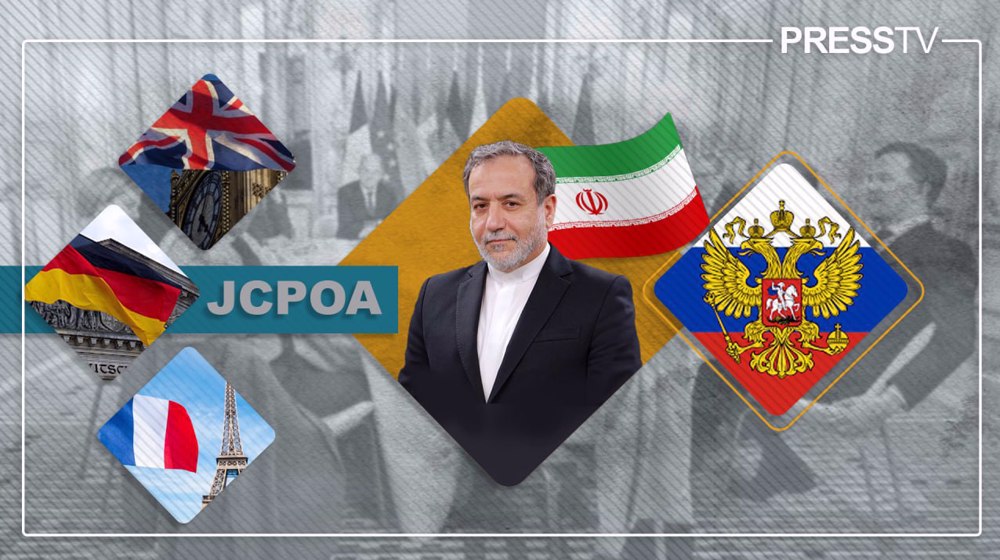Iran has provided a detailed rebuttal of claims by Britain, France and Germany to reimpose UN sanctions on Tehran by activating the snapback mechanism under the 2015 nuclear deal, calling the move “legally baseless” and a “dangerous precedent.”
In a letter dated Thursday addressed to the UN Security Council and Secretary-General António Guterres, Iranian Foreign Minister Abbas Araghchi urged all Security Council members “to reject the unjustified political manipulations and to uphold the integrity of international law and authority of the Council.”
The snapback mechanism is a provision in the Joint Comprehensive Plan of Action (JCPOA) that allows participants to restore sanctions if another party is in significant non-compliance.
Britain, France, and Germany – collectively known as the E3 – formally notified the UN last week that they were activating snapback to reinstate sanctions lifted under Resolution 2231.
Araghchi’s letter challenges the E3’s claims, particularly disputing the timeline of dispute resolution efforts under the deal.
“The European trio falsely alleges that Iran activated the Dispute Resolution Mechanism only in July 2020,” Araghchi wrote. “In reality, Iran formally triggered it on May 10, 2018.”
He emphasized that Iran’s earlier activation led to several meetings of the JCPOA Joint Commission at both political director and ministerial levels, in May and July 2018, aimed at resolving compliance disputes.
“By raising the issue of sequence, the E3 implicitly acknowledge that the order of DRM activation by different sides matters,” Araghchi added. “Their own reasoning admits remedial measures cannot be invoked against prior remedial measures.”
The foreign minister rejected the claim that the DRM requires consensus for activation, saying this logic would invalidate the European powers’ own attempt to activate the snapback.
Iran’s letter also underscores that the issues it raised during the 2018 Joint Commission meetings remain unresolved.
“The ministerial-level Joint Commission meeting of July 6, 2018 recognized issues referred by Iran as ‘unresolved,’” Araghchi wrote. “These issues remain unsolved to Iran’s satisfaction today.”
He defended Iran’s decision to gradually cease performing some JCPOA commitments beginning in May 2019, citing the United States’ unilateral withdrawal from the deal in 2018 and the reimposition of sanctions by Washington.
“These lawful measures were taken in full conformity with Iran’s rights under paragraphs 26 and 36 of the JCPOA,” Araghchi said. “They were intended to preserve the deal by compelling compliance, not to undermine it.”
He slammed the E3 over “bad-faith conduct” for failing to uphold their obligations while portraying Iran’s actions as “non-performance.”
“The E3’s attempt to activate the DRM, which was followed by further non-performance on their behalf, amounted to an act of ‘remedy against remedy,’” he wrote.

Araghchi also addressed the question of the expiration of Resolution 2231, which endorses the JCPOA and is set to lapse in October 2025.
“The Resolution must end on Termination Day,” he said. “Any other attempt would contravene realities, disregard the resolution’s purpose, set a bad precedent and deepen divisions within the Security Council.”
Iran warned it would “decisively and proportionately react, considering its supreme national interests,” should the resolution’s provisions be extended.
The letter rejected the E3’s “offer” of a limited extension of the “relevant provisions of the UNSC 2231,” saying it “disregards realities” and “deepens divisions” within the Council.
Araghchi stressed that the snapback push by the E3 “lacks validity since it has not been explicitly recognized by other participants.”
He noted that Iran had formally communicated the activation and exhaustion of the dispute resolution mechanism, warning that any move to trigger snapback now “amounts to remedy against remedy which was neither recognized by all Participants nor fully exhausted.”
“Iran’s measures, taken in full conformity with its rights under paragraphs 26 and 36, were intended to preserve the deal by compelling compliance,” Araghchi said.
“The E3’s portrayal of these lawful measures as ‘non-performance’ ignores their own culpability in provoking this legitimate recourse.”
Despite the sharp criticism, Araghchi reaffirmed Iran’s openness to diplomacy.
“Iran remains committed to meaningful diplomatic engagement aimed at achieving a new agreement — one that respects Iran’s rights under the Nuclear Non-Proliferation Treaty while addressing all mutual concerns, including the unjust sanctions that have targeted the well-being and prosperity of the Iranian people,” he said.
He called on all Security Council members to “reject the unjustified political manipulations and to uphold the integrity of international law and authority of the Council.”
“The path forward lies in mutual respect, not coercion,” Araghchi added.
The letter concluded with a request for the correspondence to be circulated as a formal document of the General Assembly and the Security Council.

